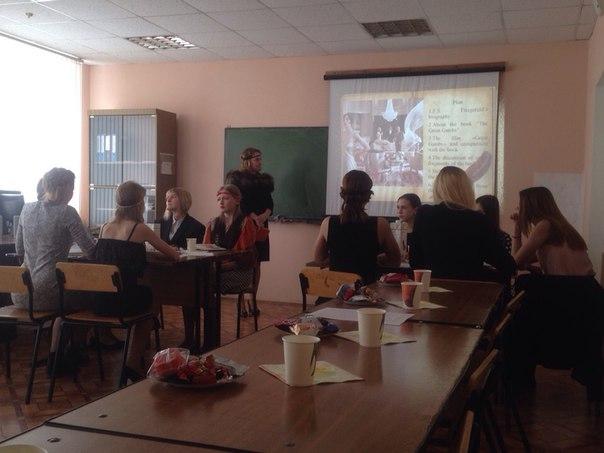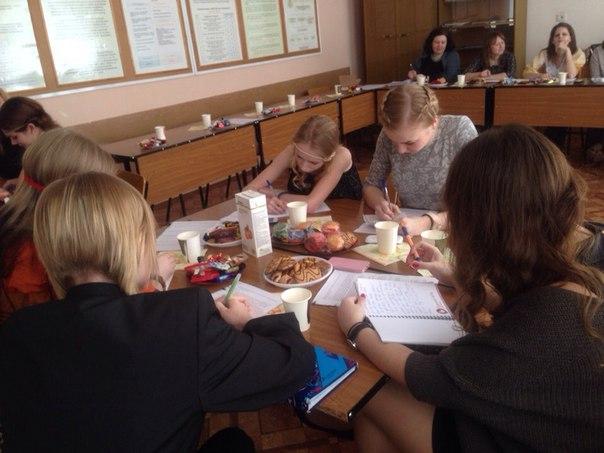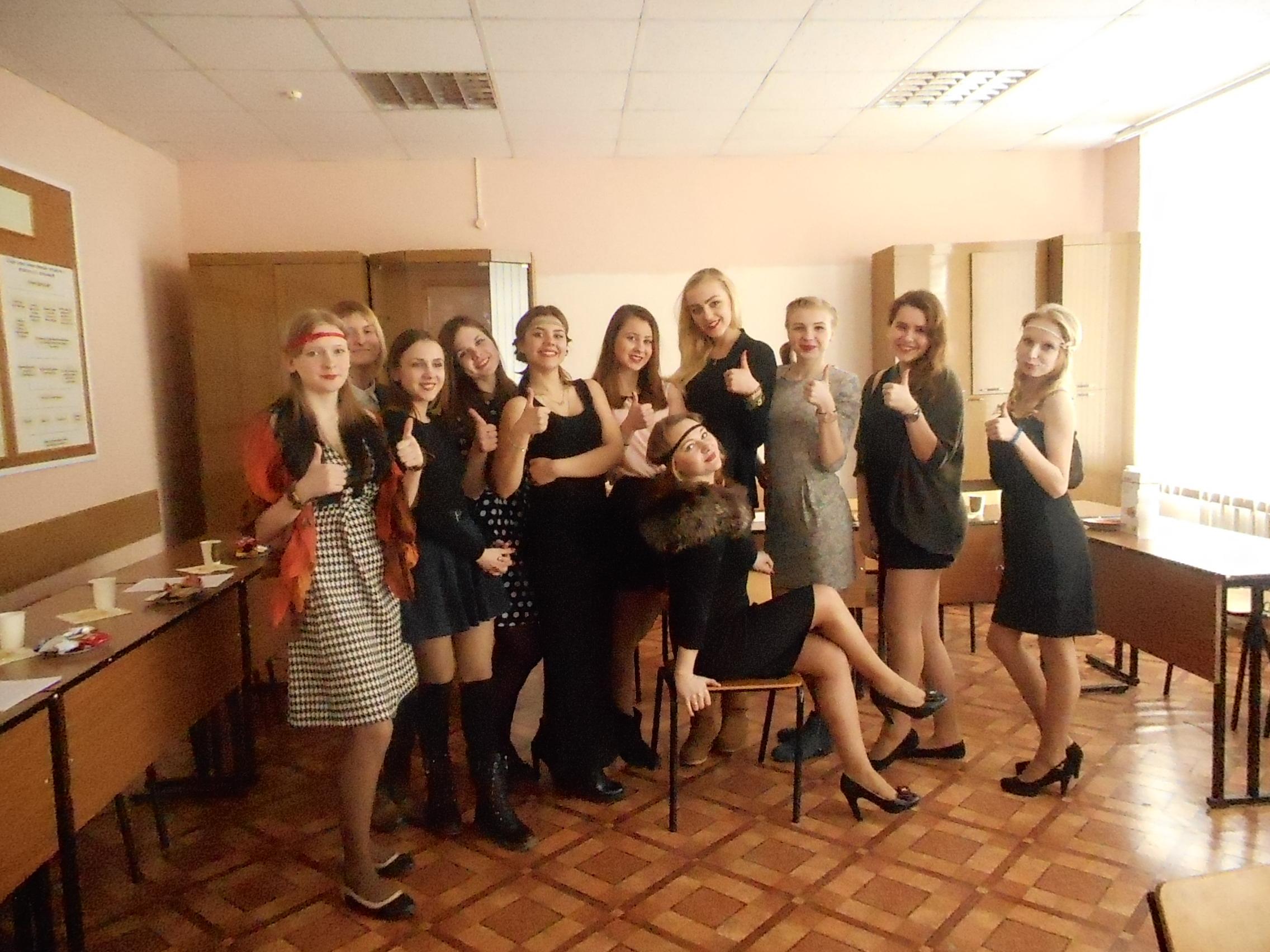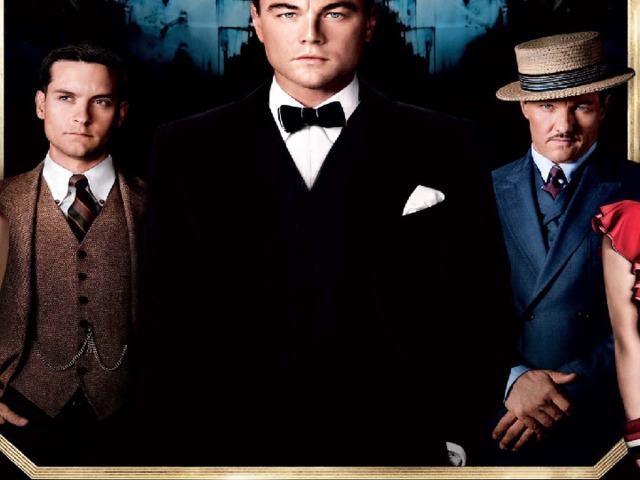
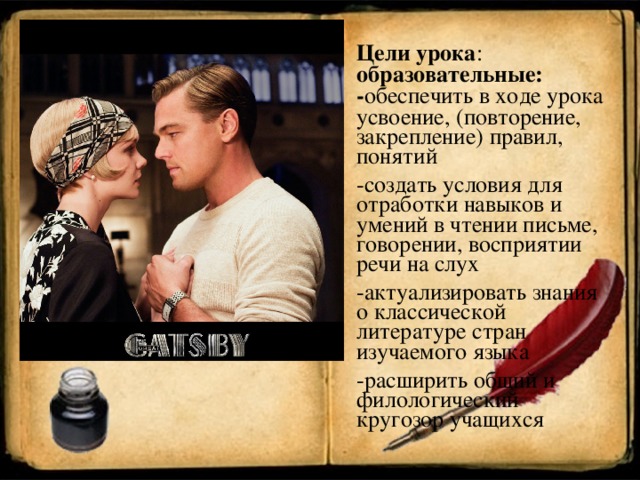
Цели урока : образовательные: - обеспечить в ходе урока усвоение, (повторение, закрепление) правил, понятий
-создать условия для отработки навыков и умений в чтении письме, говорении, восприятии речи на слух
-актуализировать знания о классической литературе стран изучаемого языка
-расширить общий и филологический кругозор учащихся
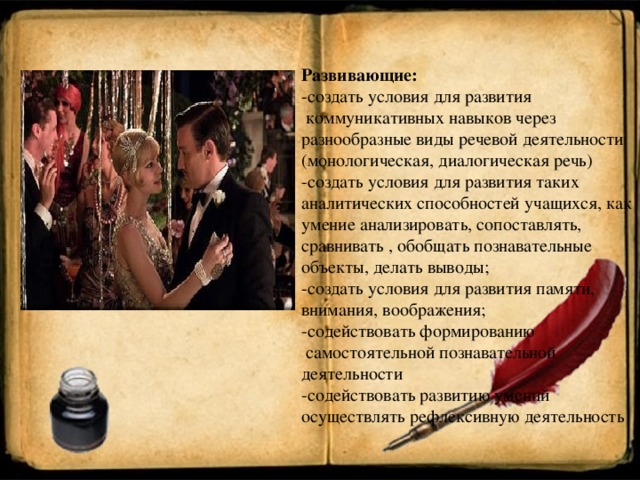
Развивающие:
-создать условия для развития коммуникативных навыков через разнообразные виды речевой деятельности (монологическая, диалогическая речь)
-создать условия для развития таких аналитических способностей учащихся, как умение анализировать, сопоставлять, сравнивать , обобщать познавательные объекты, делать выводы;
-создать условия для развития памяти, внимания, воображения;
-содействовать формированию самостоятельной познавательной деятельности
-содействовать развитию умений осуществлять рефлексивную деятельность
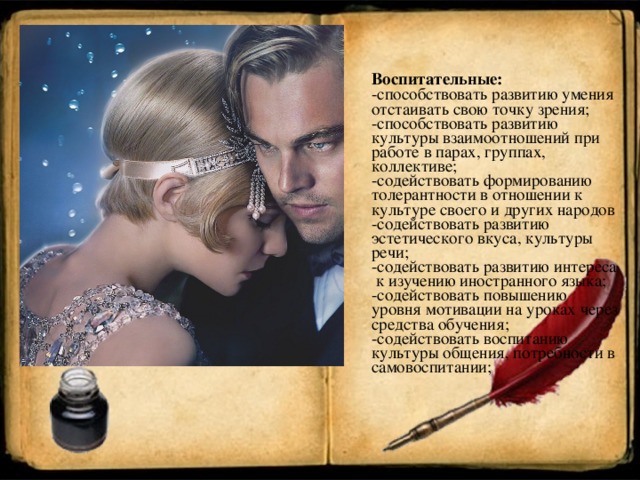
Воспитательные:
-способствовать развитию умения отстаивать свою точку зрения;
-способствовать развитию культуры взаимоотношений при работе в парах, группах, коллективе;
-содействовать формированию толерантности в отношении к культуре своего и других народов
-содействовать развитию эстетического вкуса, культуры речи;
-содействовать развитию интереса к изучению иностранного языка;
-содействовать повышению уровня мотивации на уроках через средства обучения;
-содействовать воспитанию культуры общения, потребности в самовоспитании;
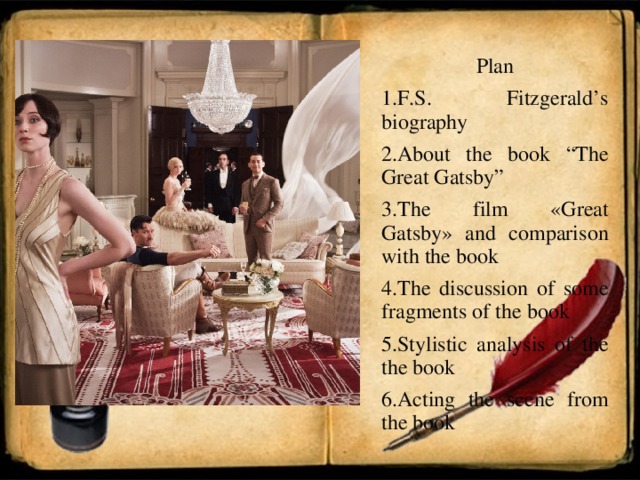
Plan
- F.S. Fitzgerald’s biography
- About the book “The Great Gatsby”
- The film « Great Gatsby » and comparison with the book
- The discussion of some fragments of the book
- Stylistic analysis of the the book
- Acting the scene from the book

Francis Scott Fitzgerald
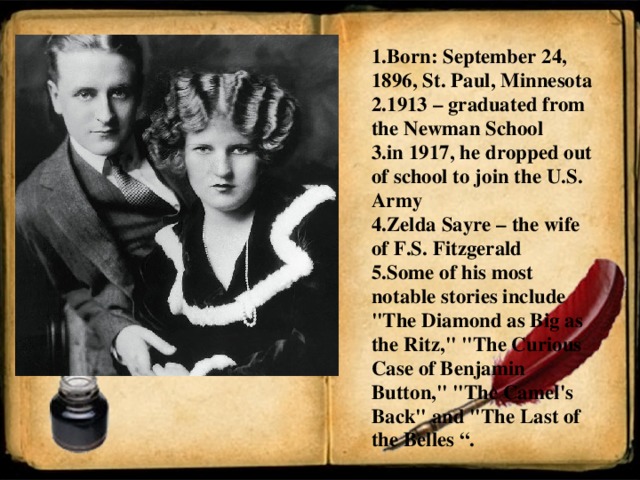
1.Born: September 24, 1896, St. Paul, Minnesota
2.1913 – graduated from the Newman School
3.in 1917, he dropped out of school to join the U.S. Army
4.Zelda Sayre – the wife of F.S. Fitzgerald
5.Some of his most notable stories include "The Diamond as Big as the Ritz," "The Curious Case of Benjamin Button," "The Camel's Back" and "The Last of the Belles “.
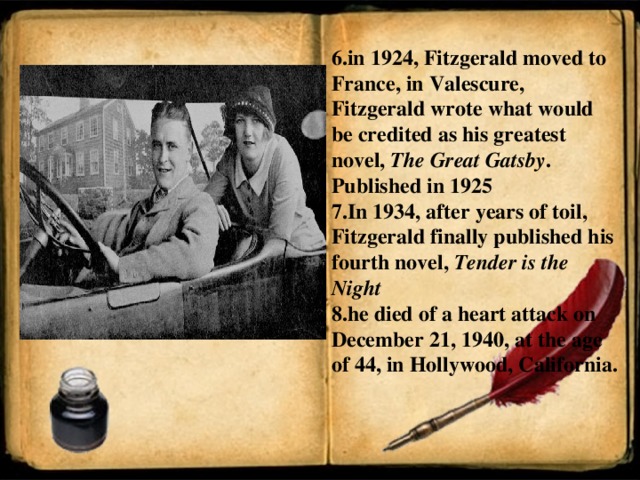
6.in 1924, Fitzgerald moved to France, in Valescure, Fitzgerald wrote what would be credited as his greatest novel, The Great Gatsby . Published in 1925
7.In 1934, after years of toil, Fitzgerald finally published his fourth novel, Tender is the Night
8.he died of a heart attack on December 21, 1940, at the age of 44, in Hollywood, California.
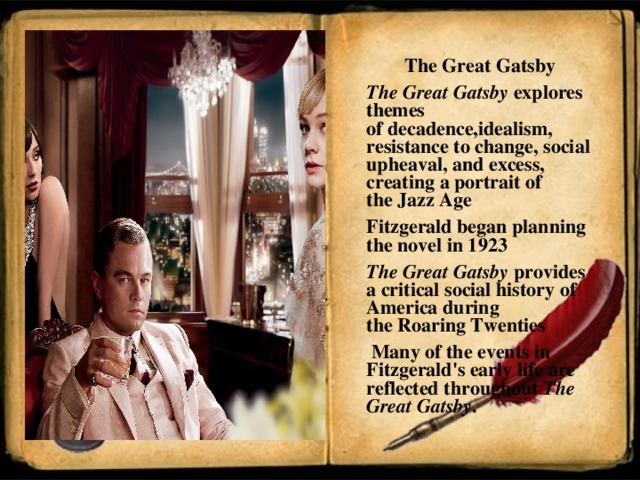
The Great Gatsby
The Great Gatsby explores themes of decaden ce ,idealism, resistance to change, social upheaval, and excess, creating a portrait of the Jazz Age
Fitzgerald began planning the novel in 1923
The Great Gatsby provides a critical social history of America during the Roaring Twenties
Many of the events in Fitzgerald's early life are reflected throughout The Great Gatsby .
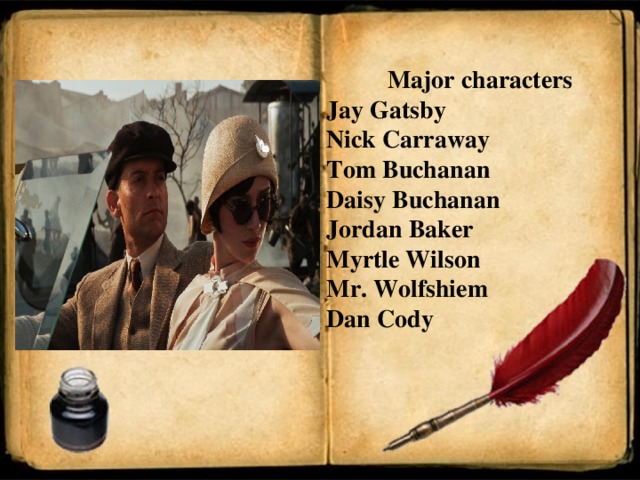
Major characters
Jay Gatsby
Nick Carraway
Tom Buchanan
Daisy Buchanan
Jordan Baker
Myrtle Wilson
Mr. Wolfshiem
Dan Cody
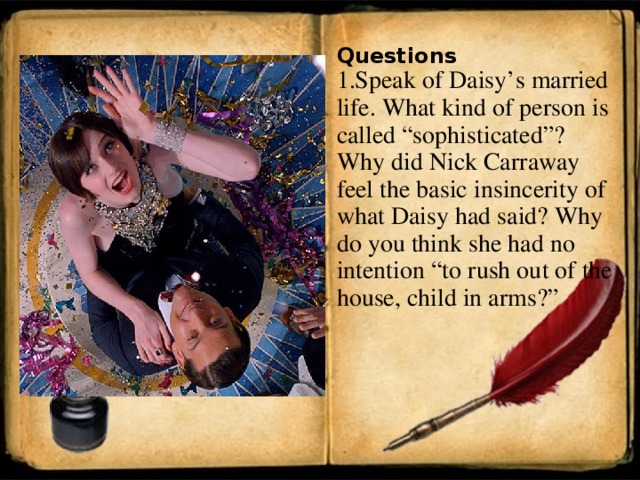
Questions
- Speak of Daisy’s married life. What kind of person is called “sophisticated”? Why did Nick Carraway feel the basic insincerity of what Daisy had said? Why do you think she had no intention “to rush out of the house, child in arms?”
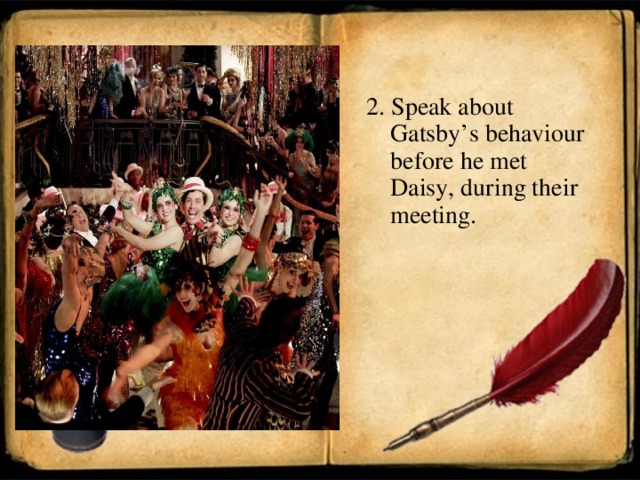
2. Speak about Gatsby’s behaviour before he met Daisy, during their meeting.
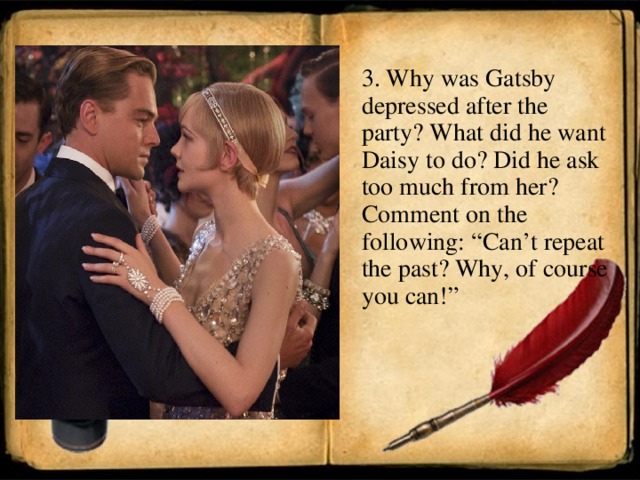
3. Why was Gatsby depressed after the party? What did he want Daisy to do? Did he ask too much from her? Comment on the following: “Can’t repeat the past? Why, of course you can!”
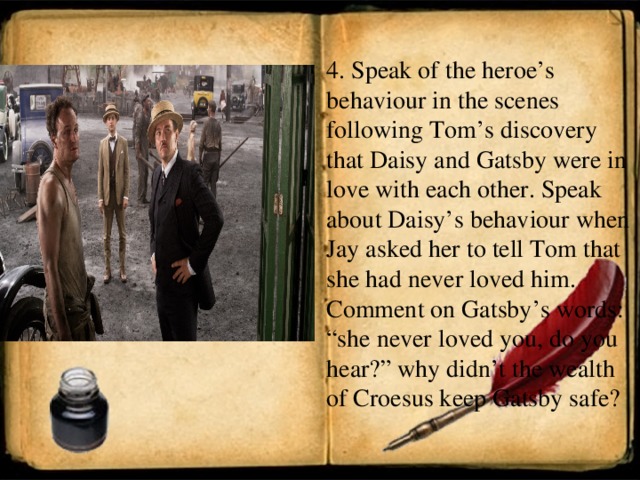
4. Speak of the heroe’s behaviour in the scenes following Tom’s discovery that Daisy and Gatsby were in love with each other. Speak about Daisy’s behaviour when Jay asked her to tell Tom that she had never loved him. Comment on Gatsby’s words: “she never loved you, do you hear?” why didn’t the wealth of Croesus keep Gatsby safe?
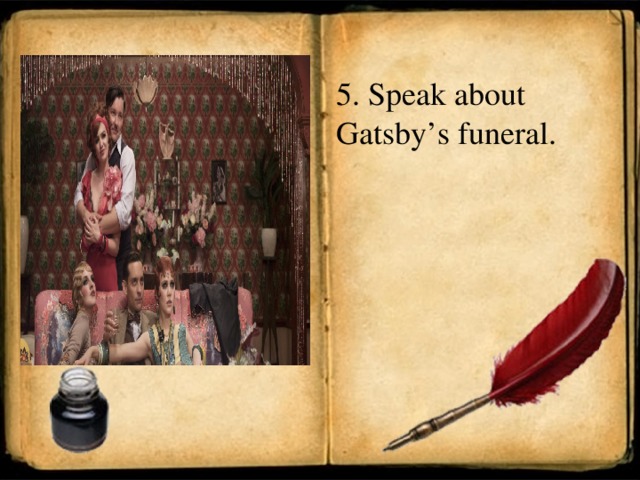
5. Speak about Gatsby’s funeral.
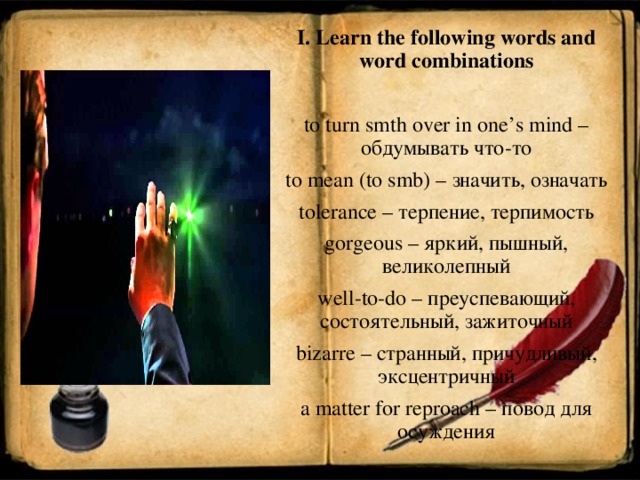
I. Learn the following words and word combinations
to turn smth over in one’s mind – обдумывать что - то
to mean (to smb) – значить , означать
tolerance – терпение, терпимость
gorgeous – яркий, пышный, великолепный
well - to - do – преуспевающий, состоятельный, зажиточный
bizarre – странный, причудливый, эксцентричный
a matter for reproach – повод для осуждения
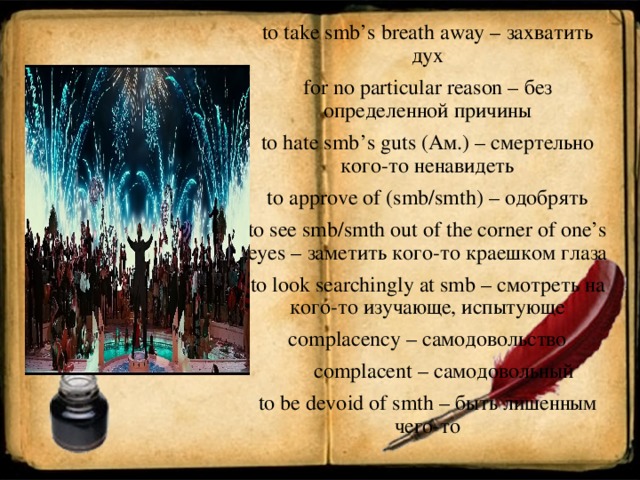
to take smb’s breath away – захватить дух
for no particular reason – без определенной причины
to hate smb ’ s guts (Ам.) – смертельно кого-то ненавидеть
to approve of (smb/smth) – одобрять
to see smb/smth out of the corner of one’s eyes – заметить кого - то краешком глаза
to look searchingly at smb – смотреть на кого-то изучающе, испытующе
complacency – самодовольство
complacent – самодовольный
to be devoid of smth – быть лишенным чего-то
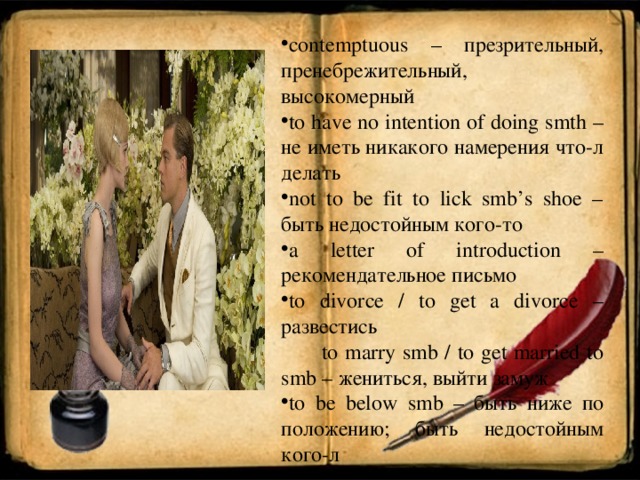
- contemptuous – презрительный, пренебрежительный, высокомерный
- to have no intention of doing smth – не иметь никакого намерения что-л делать
- not to be fit to lick smb’s shoe – быть недостойным кого - то
- a letter of introduction – рекомендательное письмо
- to divorce / to get a divorce – развестись
to marry smb / to get married to smb – жениться , выйти замуж
- to be below smb – быть ниже по положению; быть недостойным кого-л
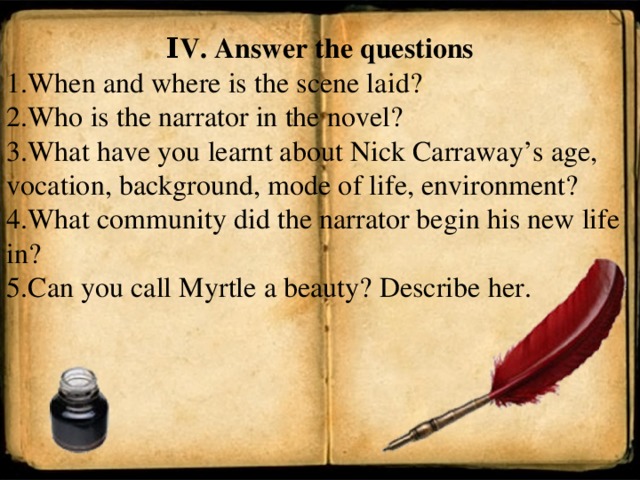
Ι V. Answer the questions
1. When and where is the scene laid?
2. Who is the narrator in the novel?
3. What have you learnt about Nick Carraway’s age, vocation, background, mode of life, environment?
4. What community did the narrator begin his new life in?
5. Can you call Myrtle a beauty? Describe her.
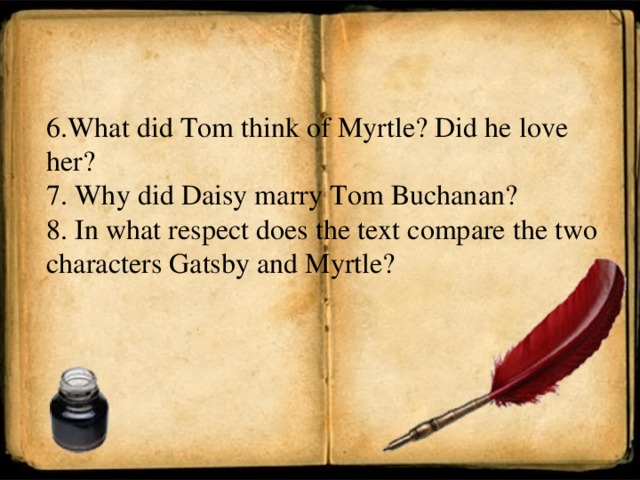
6. What did Tom think of Myrtle? Did he love her?
7 . Why did Daisy marry Tom Buchanan?
8 . In what respect does the text compare the two characters Gatsby and Myrtle?
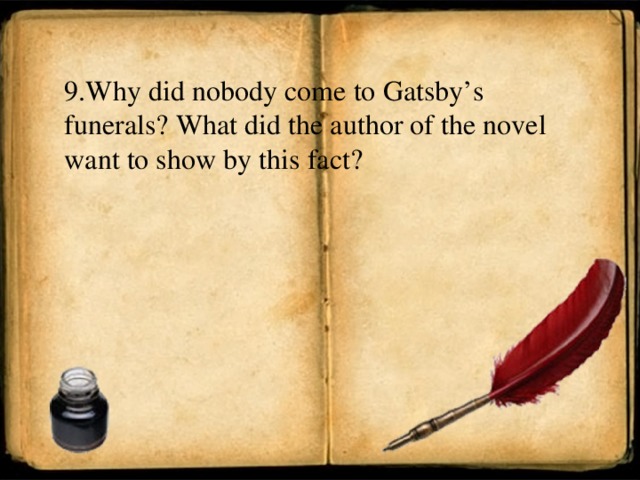
9 .Why did nobody come to Gatsby’s funerals? What did the author of the novel want to show by this fact?






